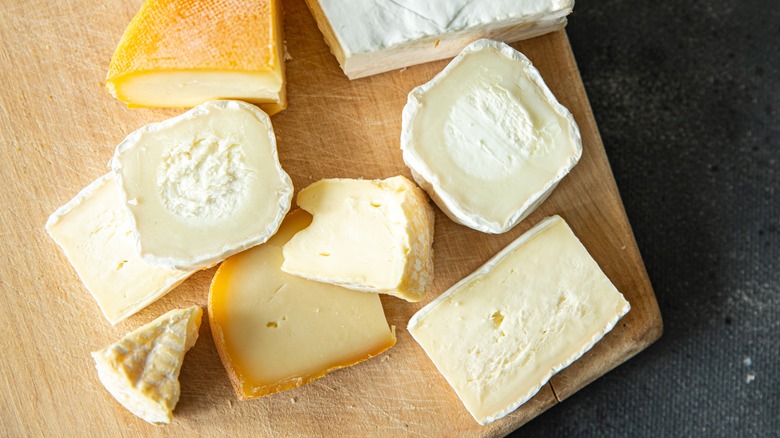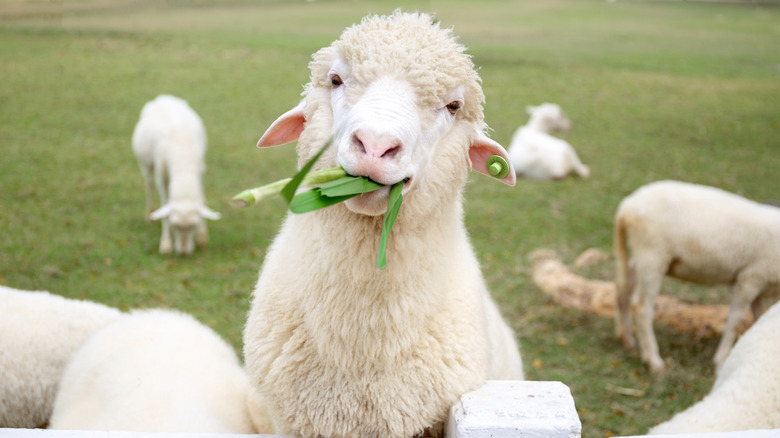Is There A Nutritional Difference Between Goat Cheese And Sheep Cheese?
There are a myriad of methods to make cheese these days. Traditionally, cows, sheep, and goats provided us with the good stuff. Nowadays, cashews, zucchini, and soy make it to the list of dairy alternative cheeses. But when it comes to the classic dairy varieties, there is no replacing that tangy, milky delicateness they offer up.
Within the dairy gang, goats and sheep are gaining some recognition for their unique output. Products made from the two tend to be more tolerated and easier to digest by those with dairy sensitivities. This is most likely due to differing levels and types of casein — a milk protein — found in their milk compared to cow's milk (per GeneFood).
Although goat and sheep cheese find themselves in a separate group from cow's milk cheese, they also really belong in groups of their own. Goats and sheep are not two peas in a pod, and neither is their milk and cheese. There are actually some key nutritional differences between the two "baas."
Goat vs. sheep showdown
Goat cheese tends to have either a creamy or crumbly texture, depending on its age. Healthline states that the cheese's age and the process by which it's made also affect its nutritional composition. Regardless of process, every type of goat cheese contains healthy macronutrients, such as fats and protein, as well as micronutrients, like vitamins and minerals. In fact, its fatty acid composition is what is responsible for goat cheese's distinct smell (via Spread Cheese Co.). It's a solid source of vitamin A, vitamin B2, calcium, and phosphorus, per Healthline.
Sheep's milk cheese often has a rich, nutty flavor, probably in part due to its higher fat content. Sheep's milk is higher in both fat and protein than goat or cow milk, per High Weald Dairy. Although higher in fat, the fat molecules are much smaller, making it easier to digest, and most of the fats are of the healthy mono- and polyunsaturated kind. It is also higher in calcium, zinc, and B vitamins.
Side by side, sheep's milk cheese edges out goat's in protein, fat, calcium, zinc, riboflavin, and folic acid (via High Weald Dairy). If you're choosing between the two cow's milk cheese alternatives, sheep's milk is the winner when it comes to nutrition density — but it's safe to say it really just comes down to a matter of taste, and you won't be missing out if you make the switch from cow's milk cheese either way.

